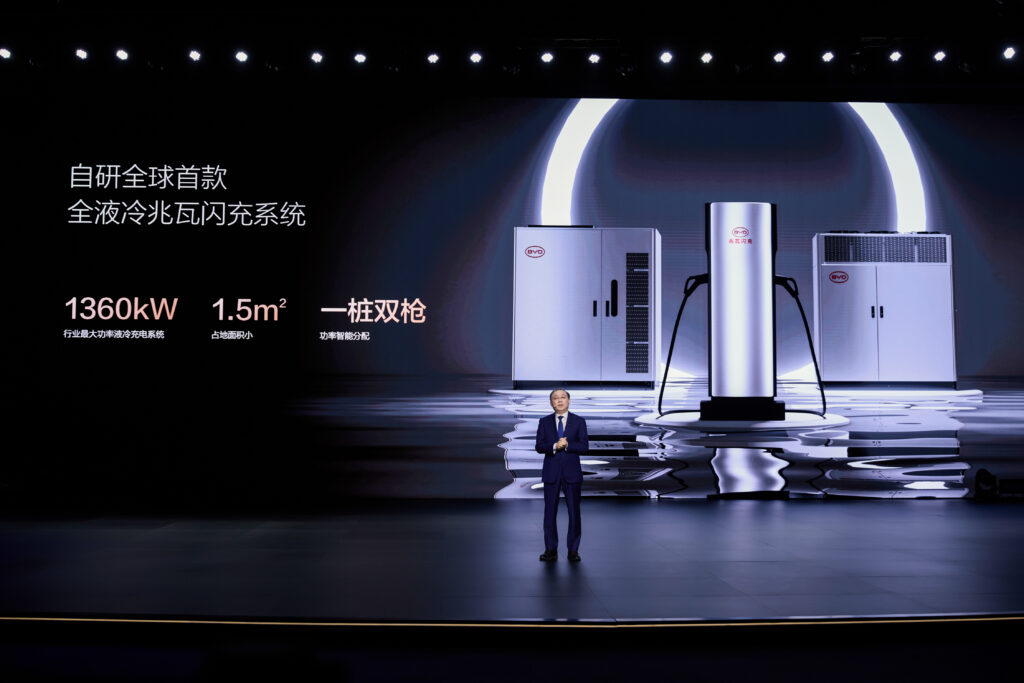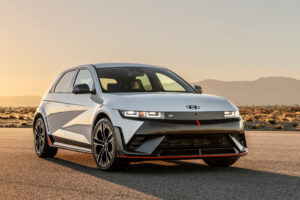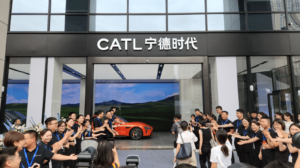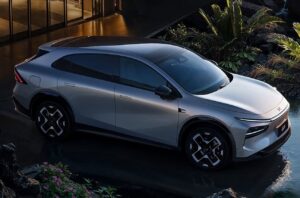Automaker partners with charging operators to expand ultra-fast charging infrastructure
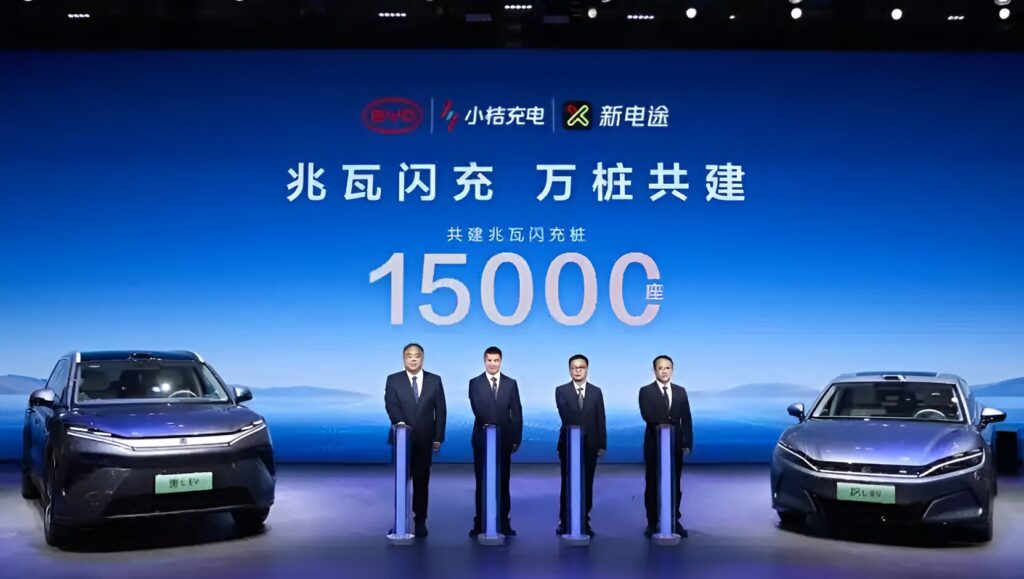
BYD has outlined plans to install 15,000 megawatt-level fast chargers in China as the company ramps up its charging network to support new models with 10C capable charging.
In March, BYD announced the launch of two new models, the Han L and Tang L, which are capable of charging at 1MW, around double that of the previous fastest charging electric cars.
Since then, BYD has moved to start implementing their new fast charger, announced at the same event, that’s capable of producing 1.3MW of output, and charging the Han L and Tang L at 1MW level using the ‘double-gun’ technique, or charging two cars separately at a peak power of 600kW from the same stall.
The technology allows compatible cars to add as much as 400km of range with just five minutes of charging.
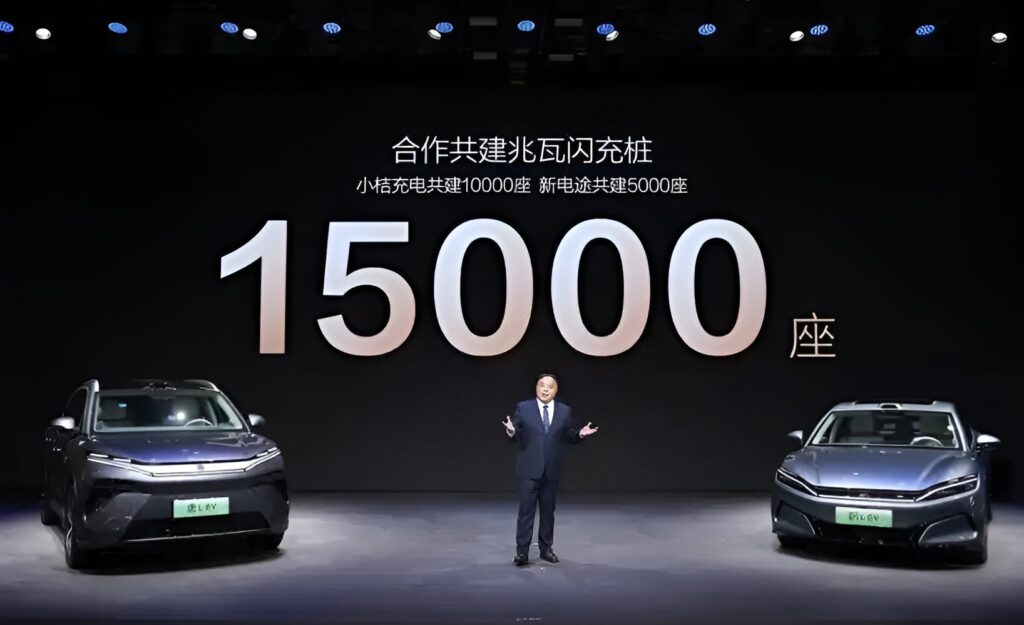
No information was given about a timeline for the delivery of the 15,000 stalls, but they will be rolled out via the support of charging operators Xiaoju Charging and Xindietu.
The initiative was announced at the 2025 Guangdong-Hong Kong-Macao Auto Show, forming part of the company’s broader charging infrastructure development programme.
Under the agreements, Xiaoju Charging will deploy 10,000 units while Xindietu will install 5,000. These additions complement BYD’s existing commitment to build 4,000 proprietary charging stations, of which over 500 are already operational across 200 Chinese cities.
Xiaoju Charging, part of Didi’s mobility ecosystem, currently serves 34 million users through partnerships with 8,400 businesses, while Xindietu’s network integrates with more than 90% of China’s public charging stations across 400 urban areas.
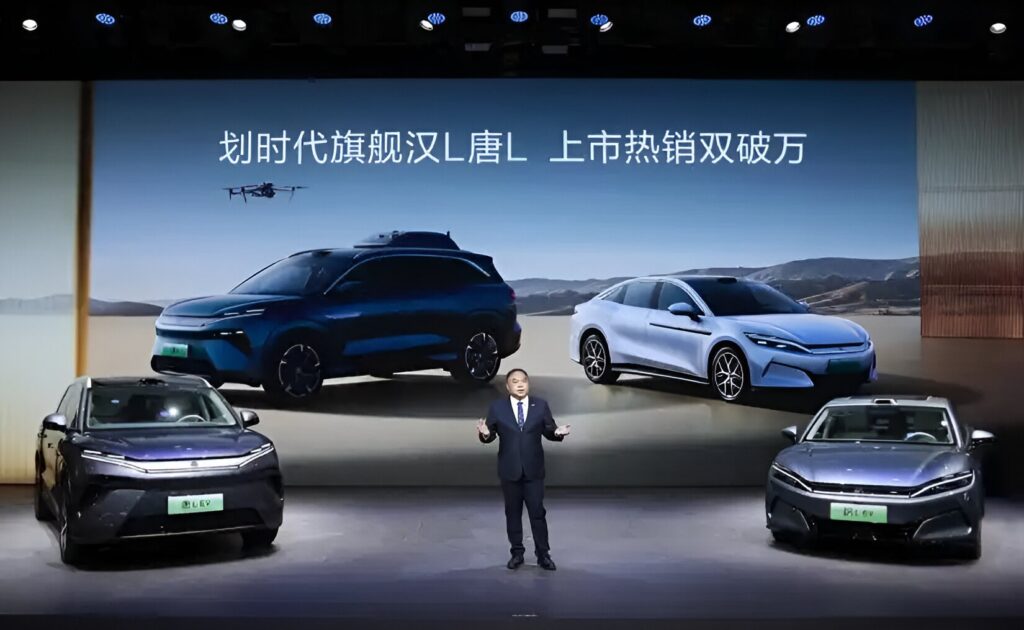
The system features a 1,000V/1,000A architecture and includes voltage compatibility technology for use across different charging platforms.
A dual-gun charging option increases power delivery by approximately 70% compared to conventional systems.
BYD introduced the Han L and Tang L vehicle models in March, and April sales figures showed deliveries of 10,483 Han Ls and 11,406 Tang Ls, contributing to over 40,000 combined deliveries for the Han and Tang model families that month.
The company is reportedly in discussions with additional charging infrastructure providers to further expand the network. The deployment aims to address current limitations in charging speed and availability, factors which industry analysts identify as key considerations for potential EV buyers.
This infrastructure development follows China’s continued growth in electric vehicle adoption, with charging accessibility remaining a focal point for industry and government initiatives. BYD’s expansion of high-power charging options represents a strategic investment in supporting its electric vehicle sales and the broader transition to electrified transport.
